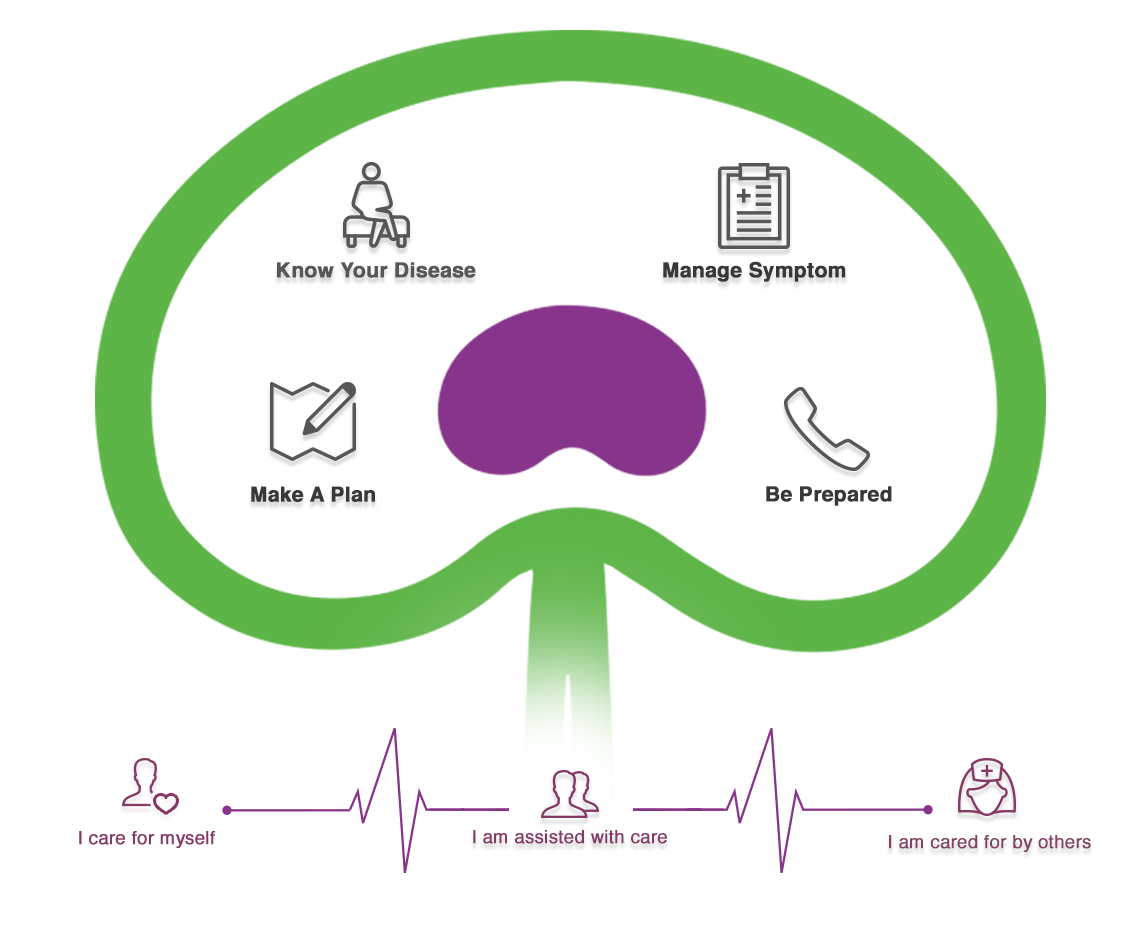How can I look after my kidneys?
Patient Handout
Many people who choose CKM live for months or even years. Your healthcare team might suggest ways to protect and maintain your kidney function, and if at all possible, slow the progression of your kidney disease.
Diet
Eating a healthy diet can help you stay well when your kidneys aren’t working properly. As your kidney function decreases, your appetite may also decrease.
Some people with kidney disease are encouraged to limit certain foods (e.g., those with high potassium, phosphorus, or sodium). This can make it hard to enjoy eating, but some foods can make symptoms worse (e.g., phosphorus can cause itching, sodium can cause swelling or shortness of breath).
With CKM, the goal is to help you feel well and enjoy your meals. You may have diet restrictions, but only if they help you to feel better. Your diet also depends on other factors like the stage of your kidney disease or if you have other health problems.
Fluids
As kidney function decreases, your kidneys may not make as much urine as before, and your body may get overloaded with fluid. Some people need to limit their fluids, while others can drink as much as they want. If you have symptoms like swelling and shortness of breath, ask your healthcare providers (e.g., dietitian) how much fluid you can drink.
Some people have to take medicine (also called water pills) to help manage fluids in the body.
Medicine
Your kidneys can be damaged by certain types of medicine. Check with your healthcare provider before you take any new medicine. It’s important to keep an updated list of your medicine so your healthcare team knows what you take—be sure to include over-the-counter medicine, vitamins, supplements, and herbal products.
You and your support people will be involved in treatment decisions. If you have side effects or questions about your treatment, talk to your healthcare team. Please also talk to them if you’re having concerns with:
- affording your medicine
- taking too many pills
- swallowing your pills
- knowing or remembering when to take pills
Blood Pressure
It’s important for most people with chronic kidney disease to manage their blood pressure so it doesn’t get too high. This can help protect your kidneys and health.
It’s also important that your blood pressure doesn’t go too low. Low blood pressure or blood pressure that drops quickly when you stand up can be dangerous and may cause you to fall.
For this reason, not having very low blood pressure may be more important than having very strict blood pressure control.



